Centre for Innovation in Carbon Capture and Storage (CICCS)
The Centre for Innovation in Carbon Capture and Storage (CICCS) at Heriot-Watt University has extensive state-of-the-art laboratory facilities covering the whole CCS chain, including equipment for capture, transport, storage, utilization and monitoring. The main equipment is listed below.
Carbon capture rigs for low and high temperature systems. The CICCS labs are equipped with reactors/instrumentation to cover several aspects of CO₂ capture at low and high temperature, including absorption and adsorption, as well solvent/sorbent regeneration and degradation.
Carbon dioxide transport. The purpose built system allows mass flow calibrations and to evaluate/calibrate measurement uncertainty of mass flow-meter at pressure up to 100 bar and temperature between 263 K and 373 K.
Autoclave Reactors. Rigs to study CO₂ geological storage, as well as enhanced hydrocarbon recovery. Several rigs can operate at high temperature and high pressures that mimic the conditions under which CO₂ is stored in geological formations to study co-injection of gas mixtures, long-term fate of CO₂ and well integrity.
Columns to monitor environmental impacts of CO₂ release. Flow through column systems to study the potential impacts caused by CO₂ seepage for both on-shore and off-shore systems. The columns can also be used for the development and testing of sensors.
CO₂ sequestration modules for mineral carbonation. Specialised rigs for mineral carbonation experiments that can be used for flue gas or pure CO₂ streams. There are also rigs for scaling up experiments. In-situ and/or high-pressure ex-situ carbonation experiments are run up to 100bar and 250˚C.
CO₂ utilisation-specialized reactors for solar fuel production. Photoreactors for solar fuel production, including liquid-phase (slurry and low pressure) and gas-phase (optical fiber, monolith, internally illuminated monolith, filter and plate) that use light energy to convert CO₂ into fuels and chemicals. There are several light systems and external radiometers for adjustment of light intensity.
Supporting analytical equipment. CICCS is well equipped with state-of-the-art analytical instrumentation and other supporting laboratory equipment, including mass spectrometers, FT-IR spectrometer, thermogravimetric analyser, physisorption/chemisorption units, multi-parametric probes (pH, conductivity etc.), pulverisers, muffle/tube furnaces and ovens.
Specifications / Key Features
Autoclave Reactors: Rigs capable of working over a wide range of temperature and pressure conditions (up to 350°C and 5,000psia). Mass flow calibration system: pressure rated to 1450 psi and temperature between -10°C up to 100°C. Chemisorption analyzer: capable of working over a wide range of temperatures (-196°C to +1000°C). Available in manual or auto modes with selection up to 5 different gas ports. Photoreactors: operating range of temperatures up to70°C) and pressures up to 73 psi. Light system: adjustable light intensity, including UV (365 nm), visible (400-500 nm) and UV-visible (250-600 nm) lights.
Example Projects
CO2 injection and storage - Short and long-term behaviour at different spatial scales
This project addresses the gaps in our current knowledge in this field through an integrated laboratory and numerical modelling approach. Project partners: Imperial College London, Heriot-Watt University, Leeds University and British Geological Survey.
CO2TRIP: Long-term research activities in the area of advanced CO2 Capture Technologies for Clean Coal Energy Generation
EU funded project with partners in Poland, Germany, UK, USA, Japan, China and Australia.
Performance of Flow Meters with Dense Phase CO2 and CCS Recovery Streams
This research project provides a complete assessment of meters for accurate flow measurement within CCS streams.
Centre - Gallery - Container 11947
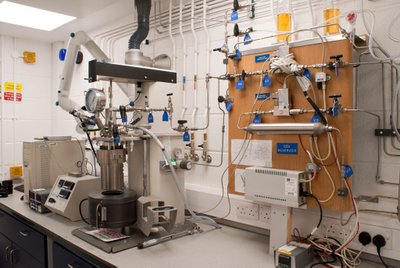
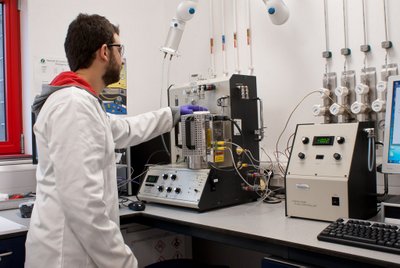
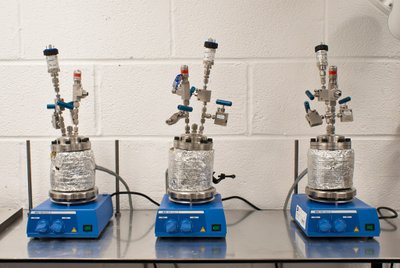
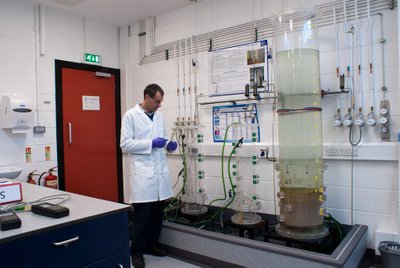
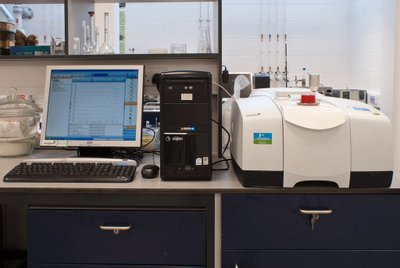
Key information
Mercedes Maroto-Valer
- Professor
- m.maroto-valer@hw.ac.uk